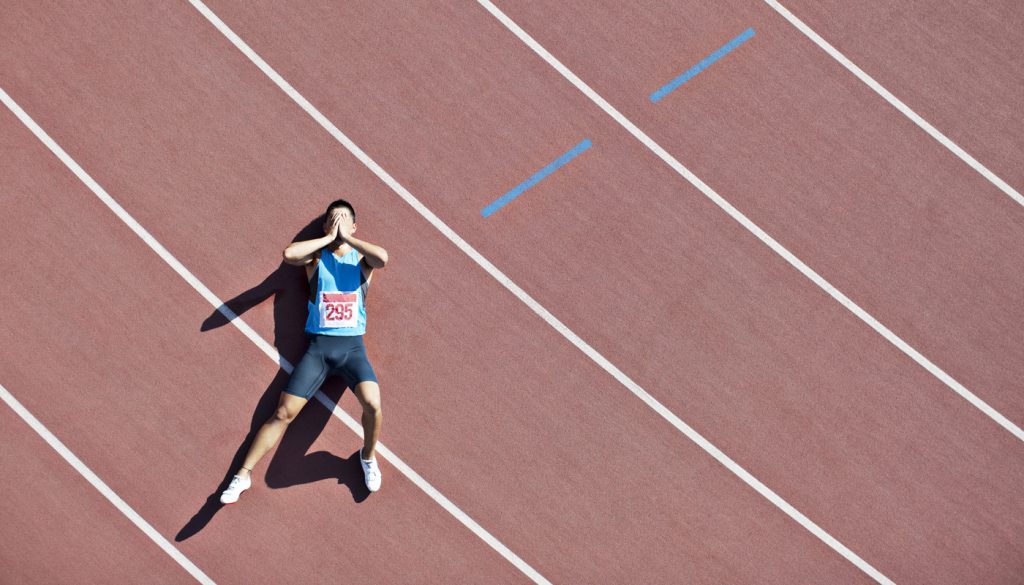Let the Games Begin! Will Olympians Choke Under Pressure?

The Olympics are finally here, and all the years of training and sacrifice come down to this. With so much pressure, . Robert Gray of the School of Sport and Exercise Sciences at the University of Birmingham studied how paying too much attention to what you’re doing can actually ruin performance.
“We think when you’re under pressure, that your attention goes inward naturally. Suddenly it means so much, you want to make sure everything’s working properly,” says Rob Gray in an article published in Current Directions in Psychological Science. And that is exactly when things go wrong. Something about paying attention to what you’re doing makes it not work right.
Of course, athletes know that they should just relax and do their usual thing, but it’s not very helpful to tell someone to just relax. The goal for psychological scientists, Gray says, is to figure out what actually happens when someone starts paying too much attention to their body. “Focusing on what you’re doing makes you mess up, but why? How do your movements change? How can we focus on correcting those issues instead of telling you to stop trying so hard?”
Gray has found that baseball players who are under pressure have fewer hits because their swing varies more under pressure than at normal times. Other researchers have found that climbers move less fluidly when they’re higher up on a wall than when they’re near the ground, which suggests that their joints move less freely when they’re more anxious.
The research shows that there are particular things that go wrong when someone is under pressure — changing the angle of the club head when putting or throwing with more force. If those things can be identified, a coach could work on the particular problems.
One way to do it might be with analogies, Gray says. For example, a golfer who grips the club too tight when she’s nervous might benefit from an instruction like “imagine you have an open tube of toothpaste between your hands and the contents must not be pushed out.” This approach would both address the problem and get her attention away from how well she’s doing.
For more on why we choke under pressure, check out the research of Sian L. Beilock and of Choke: The Secret to Performing Under Pressure at the APS 24th Annual Convention.





APS regularly opens certain online articles for discussion on our website. Effective February 2021, you must be a logged-in APS member to post comments. By posting a comment, you agree to our Community Guidelines and the display of your profile information, including your name and affiliation. Any opinions, findings, conclusions, or recommendations present in article comments are those of the writers and do not necessarily reflect the views of APS or the article’s author. For more information, please see our Community Guidelines.
Please login with your APS account to comment.